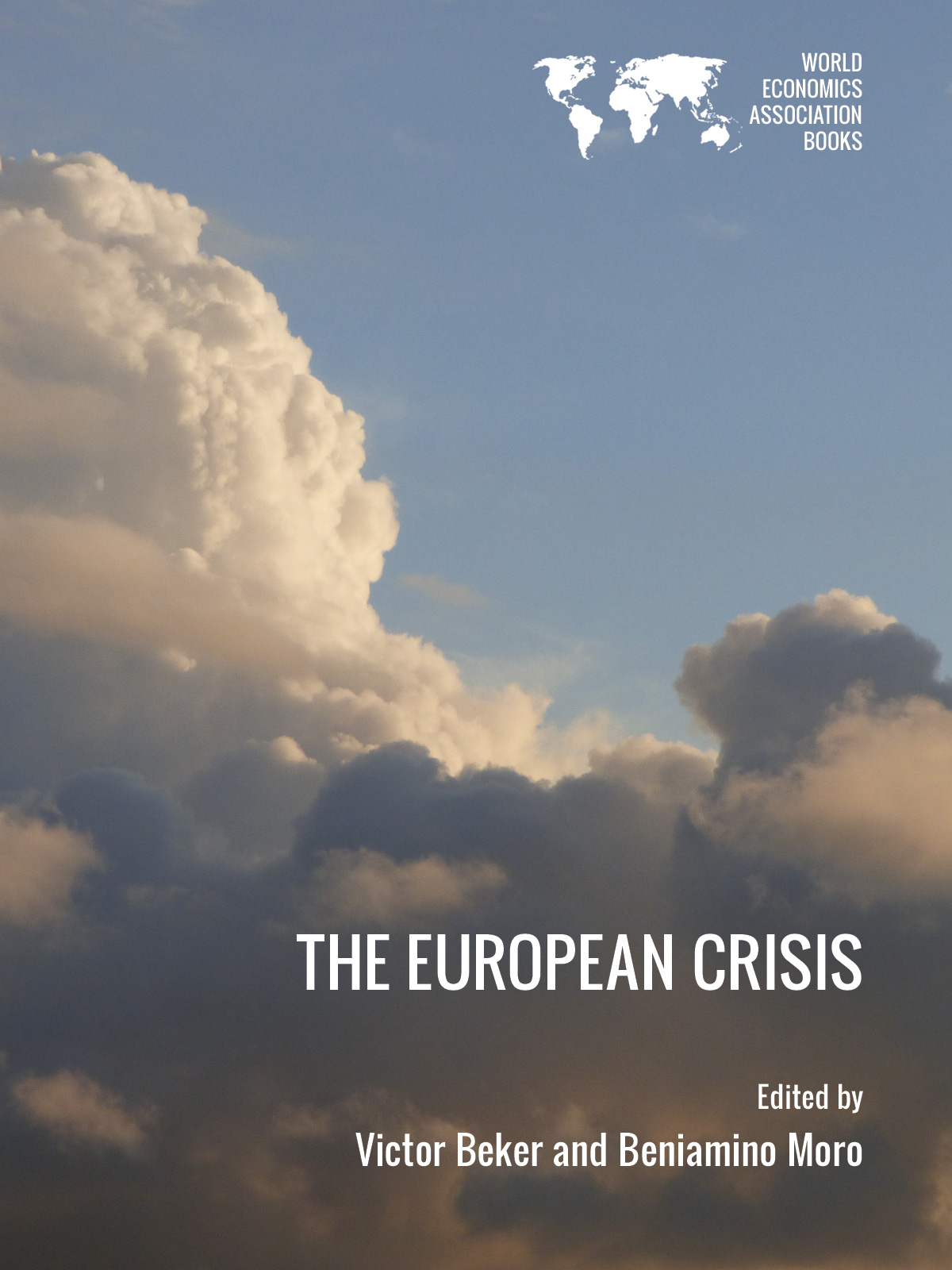A Euro Area Government – A Dream Come True?
Tom Vleeschhouwer and Tara Koning
Please cite the paper as:
Tom Vleeschhouwer and Tara Koning, (2015), A Euro Area Government - A Dream Come True?, World Economics Association (WEA) Conferences, No. 2 2015, The European Crisis, 1st October to 1st December, 2015

This paper has been included in the publication
“The European Crisis”
Abstract
This paper studies three important problems that have led to or have aggravated the euro crisis: moral hazard in accumulating debt by sovereigns, lack of macroeconomic policy coordination and stabilization, and macroeconomic imbalances. We use both theoretical and empirical evidence to argue that these problems were largely caused by coordination problems. We will then investigate whether a supranational government, a layer of government above all euro member countries, can alleviate these problems. We will find that macroeconomic stabilization and macroeconomic imbalances can be improved by such a government, though moral hazard cannot be solved. The only, but certainly not insignificant, obstacle seems to be that politicians and voters may not be willing to transfer their authority to this government.
Dear writers,
I have found your paper a great read. It provides a good overview of most core problems in the european crisis. It’s too bad that you do not touch upon the role of the banks, though I guess this is not something which falls within the scope of the paper. Have you thought about this?
Dear Henk,
Thanks for your comment. Indeed, we have not covered the banking system. This is because the European member states have been moving towards a banking union, and therefore the question whether banking should be supervised by a supranational government is less interesting. Also, banking supervision is carried out by the ECB and national banks, and this is therefore not something a classic, cabinet-like government would be carrying out, and is therefore not in the scope of our papar.
To comment Mr Vleeschhouwer.
Authorization and control over NCB by National Government is necessary, whereas the financial stream ,possibly to be created by NCB,
f.i. by means of electronic multiplication of banknotes, could be directed to Governments budget, to enable less risky financial furnishment
and elimination of taxes. Law articles to be voted by Parliaments , in order to create legal establishment , competencies and connections. An independent legal public person to the government could be founded to which the NCB could be subordinated.
Pasbaxo,
If I understand correctly, you suggest that NCB’s should be controlled by their respective governments, instead of reporting to the ECB. While I do not really see any benefits compared to the current system, absolute control of the NCB by the national government is not advisable; governments are looking for economic growth. If they have control over the NCB, and therefore over monetary policy, the government will pressure the NCB to keep interest rates low, lower than would be optimally given inflation rates. Now, the ECB is the one governing interest rates, though if all NCB’s were controlled by their respective governments, they would be instructed to vote for low interest rates, and therefore the ECB meeting would result in low interest rates. Therefore, independence from the fiscal policy authority is a necessary component for a well-functioning NCB.